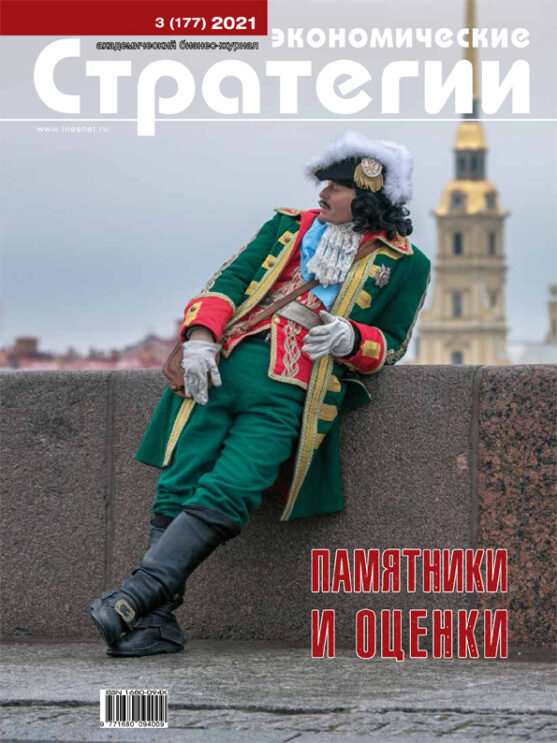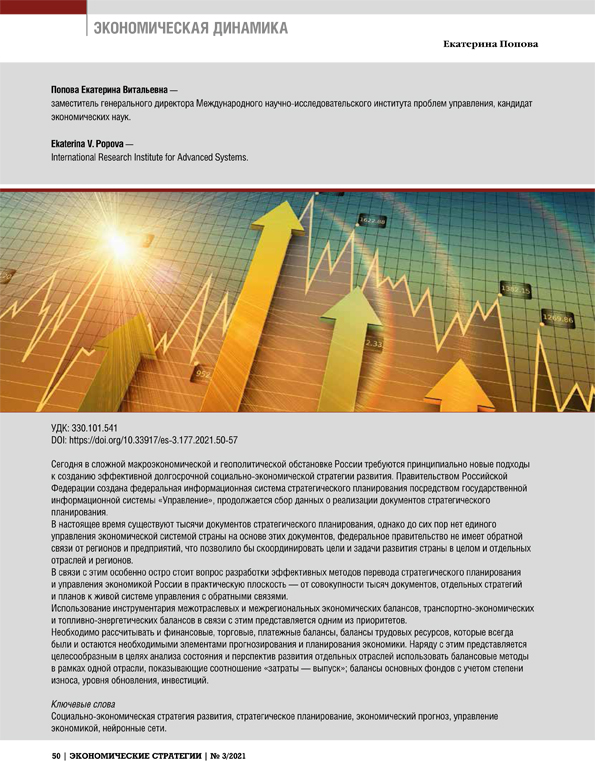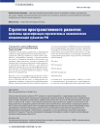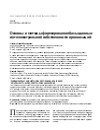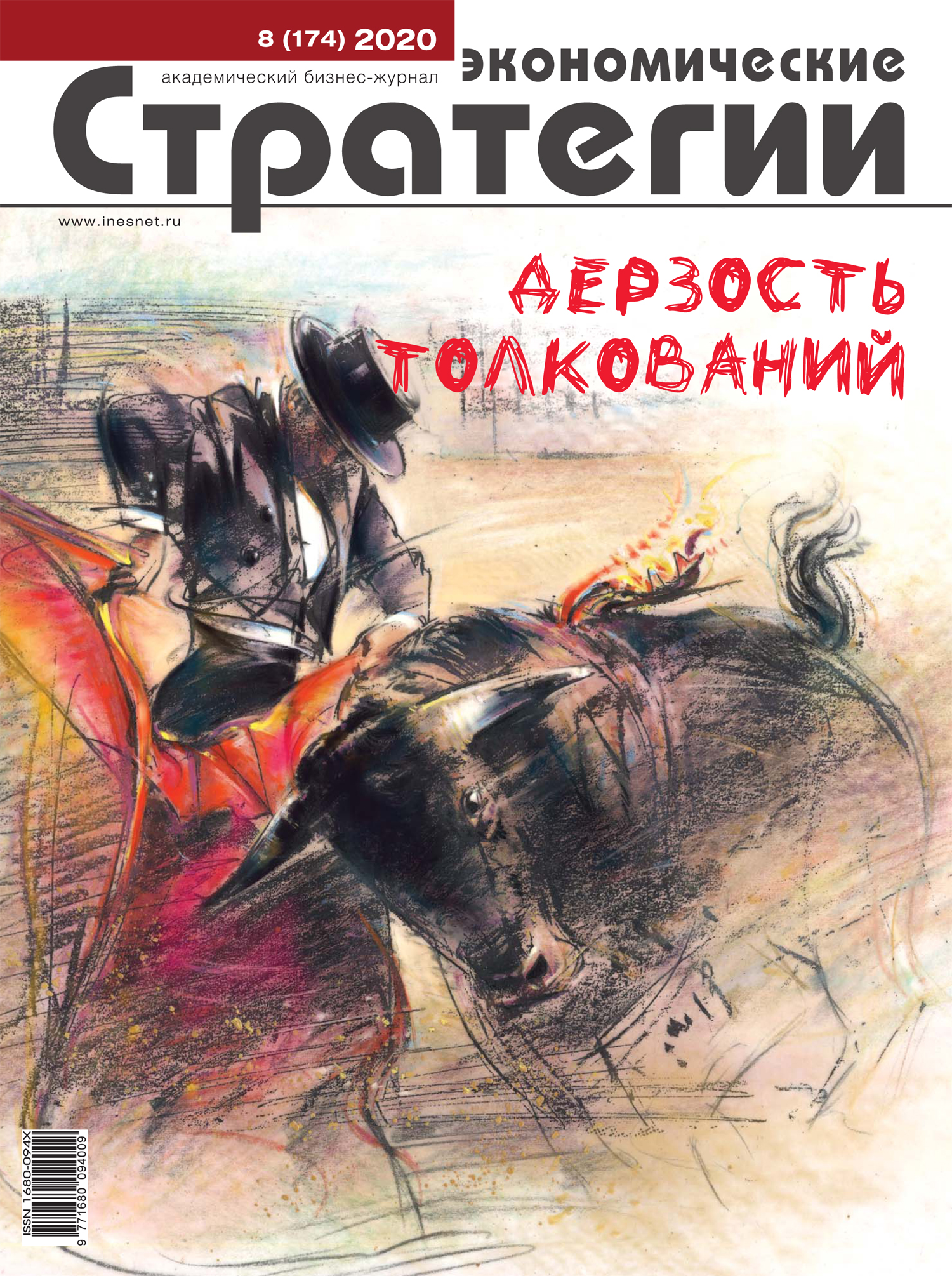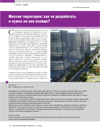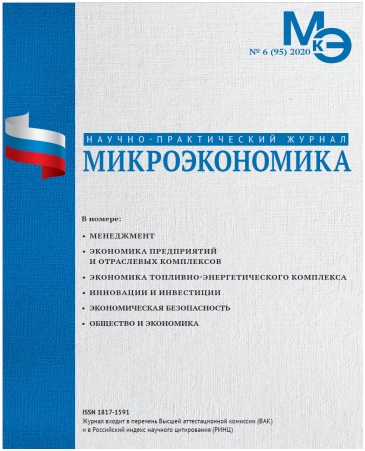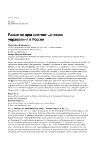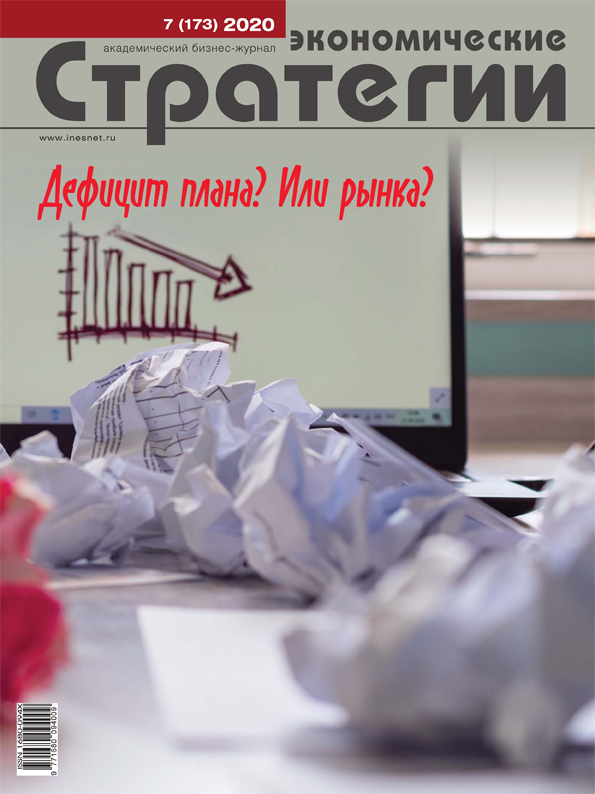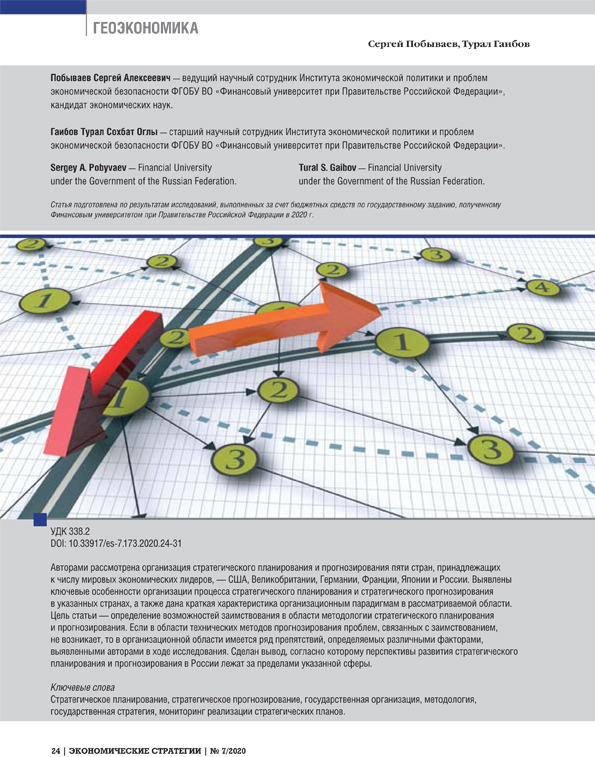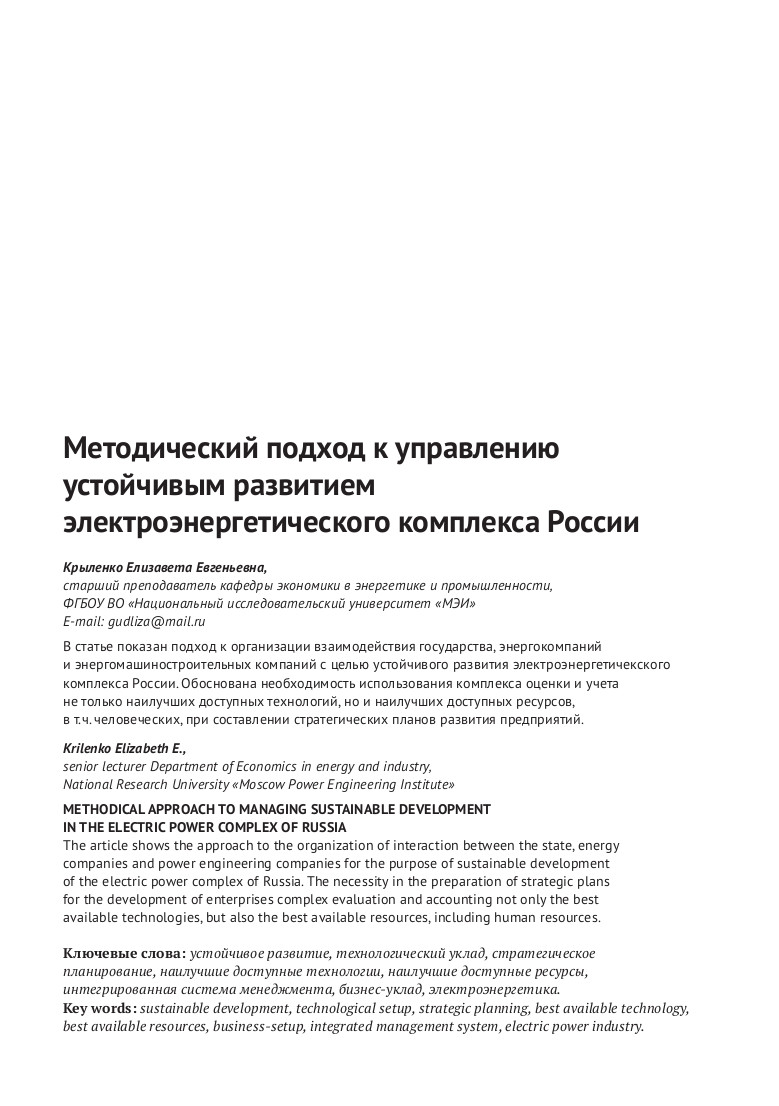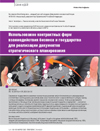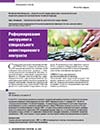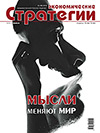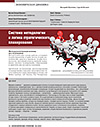Proposals for Creating an Effective Mechanism for Implementation of the Long-term Socio-economic Strategy of Russia
DOI: https://doi.org/10.33917/es-3.177.2021.50-57
Today, in a complicated macroeconomic and geopolitical environment, Russia requires fundamentally new approaches to creating an effective long-term socio-economic development strategy. The Government of the Russian Federation has created a federal information system for strategic planning through the state information system “Management”, collection of data on implementation of strategic planning documents is going on.
Currently, there are thousands of strategic planning documents, but it is still missing a unified management of the country’s economic system based on these documents, federal government does not have feedback from regions and enterprises, which could allow coordinating the development goals and objectives of the country as a whole and individual industries and regions.
In this regard, the issue of developing effective methods for converting strategic planning and management of the Russian economy into operational terms is particularly urgent — from a set of thousands of documents, individual strategies and plans to an operate management system with feedback.
Application of the toolkit for intersectoral and interregional economic balances, transport-economic and fuel-energy balances, in that respect, seems to be one of the priorities. It is also necessary to calculate financial, trade balances, balances of payments, of labour resources, which have always been and still remain necessary elements of economy forecasting and planning. Along with this, it seems appropriate, analyzing the state and prospects of individual industries development to use balance methods within the same industry, showing the ratio of “costs — issue”, balances of fixed assets, based on depreciation degree, the level of renewal, investments.
Источники:
1. Leont’ev V.V. Ekonomicheskie esse. Teorii, issledovaniya, fakty, politika [Economic Essays. Theory, Research, Facts, Politics]. Moscow, Politizdat, 1990, p. 230.
2. Veduta E.N. Mezhotraslevoi-mezhsektornyi balans, mekhanizm strategicheskogo planirovaniya ekonomiki [Inter-industry-cross-sectoral Balance, Mechanism for Strategic Economic Planning]. Moscow, Akademicheskii proekt, 2016, p. 141.
3. Materialy seminara «Razvitie metodologii prognozirovaniya ekonomiki Rossii na baze mezhotraslevogo i mezhregional’nogo kompleksa» [Proceedings of the Seminar “Developing Methodology for the Russian Economy Forecasting on the Basis of an Inter-sectoral and Cross-regional Complex”]. Moscow, OAO «IERT», 2014, p. 56.


